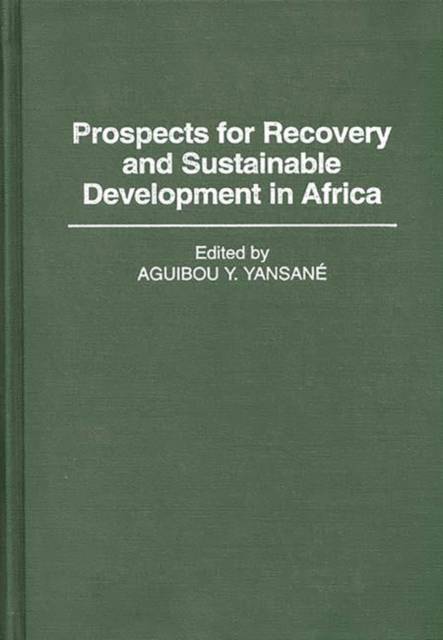
- Afhalen na 1 uur in een winkel met voorraad
- Gratis thuislevering in België vanaf € 30
- Ruim aanbod met 7 miljoen producten
- Afhalen na 1 uur in een winkel met voorraad
- Gratis thuislevering in België vanaf € 30
- Ruim aanbod met 7 miljoen producten
Zoeken
Prospects for Recovery and Sustainable Development in Africa
Aguibou Yan Yansane
€ 161,45
+ 322 punten
Omschrijving
Nine world-class experts on the African economy share their knowledge regarding the potential for real improvement and growth in food production and the development of grassroots economies that will benefit citizens as well as governments. Economic models that assume good incentives, infrastructure, entrepreneurial skills, and a level trading field cannot be invoked. Structural adjustment in African countries has led to unintended consequences because the common people and the small farmers have not been consulted. Domestic food production, the crux of Africa's economic problem, has been downgraded because of the emphasis on export crops. To develop self-sufficiency and food security, African nations must mobilize domestic resources, improve the human resource capacity, and strengthen their scientific and technological bases. They must also cooperate in integration schemes rather than compete for the available Western aid.
Specificaties
Betrokkenen
- Auteur(s):
- Uitgeverij:
Inhoud
- Aantal bladzijden:
- 384
- Taal:
- Engels
- Reeks:
Eigenschappen
- Productcode (EAN):
- 9780313289958
- Verschijningsdatum:
- 16/04/1996
- Uitvoering:
- Hardcover
- Formaat:
- Genaaid
- Afmetingen:
- 156 mm x 234 mm
- Gewicht:
- 707 g

Alleen bij Standaard Boekhandel
+ 322 punten op je klantenkaart van Standaard Boekhandel
Beoordelingen
We publiceren alleen reviews die voldoen aan de voorwaarden voor reviews. Bekijk onze voorwaarden voor reviews.







